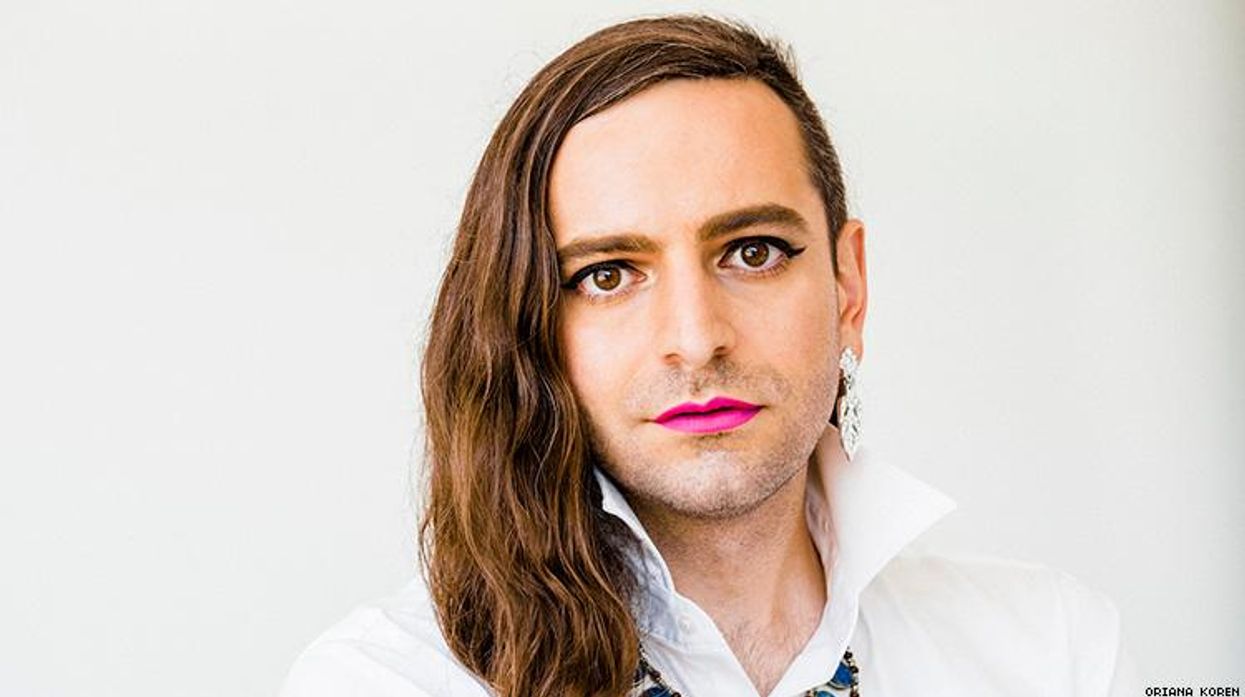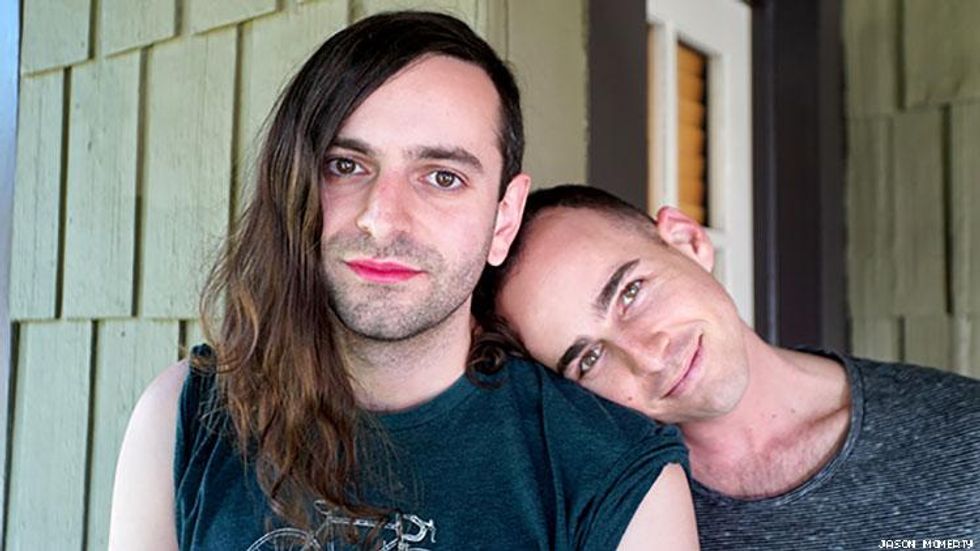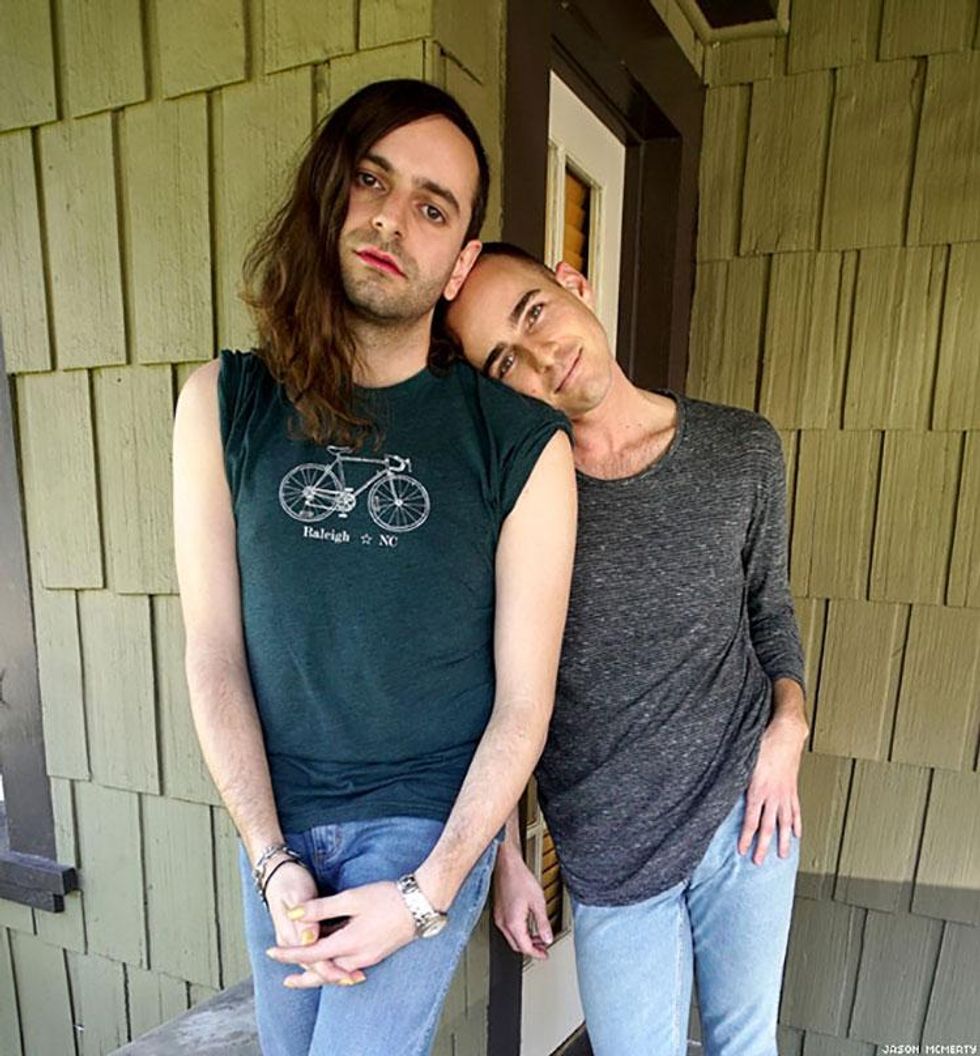With their new memoir, Sissy: A Coming of Gender Story, readers are let into Jacob Tobia's teenage years growing up in North Carolina as they explore and try to find the right words to describe their gender. "My femininity came as naturally as my masculinity," they write. "As a child, I simply wanted it all. I was a precocious, smart, fast, energetic little fucker, and baby, I wanted all the gender I could get."
Jacob Tobia's work functions as both a celebration and rejection of popular trans narratives -- gender is mutable, it's something to have fun with. But it's not a simple journey from A to B. It's a neverending puzzle, a Rubik's Cube of many colors that twists and turns to reveal different parts of yourself.
On this week's episode of The Advocate's podcast, LGBTQ&A, Jacob talks about the myth that their gender is an "intellectual exercise," why no one should feel obligated to share their trauma, and why it's important to complicate male privilege.
Read highlights from the interview here, or listen to the full podcast interview on the audio player below.
Subscribe to LGBTQ&A on iTunes, Spotify, Stitcher, or wherever you listen to podcasts.

On the myth that nonbinary gender identities are an intellectual exercise:
There's a real stereotype out there that nonbinary people are just doing it for attention. That the way we embody our gender is because we want to be edgy and rebellious. For me, the stakes of how we treat trans and gender non-conforming and queer and nonbinary and gay kids, it's not about some intellectual exercise. It's about the fact that children should not have to endure cruelty because of how they express their gender in the world.
On the sharing of trauma not being obligatory:
I think the sharing trauma's really beautiful and powerful, but when you make the sharing of trauma obligatory, that's fucked up, right? It's not okay for the expected narrative from a trans person to be one of trauma.
I don't want to say that trauma narratives aren't OK or aren't useful. You know, you get a catharsis from sharing your story of trauma, right? That's the other thing: refusing to recount my story and the terms of my trauma does not mean that I don't have it. It doesn't mean that I haven't had challenging experiences in my life and that these things haven't been difficult at times, but what I feel is that my trauma should be my own and should be mine to tell. I should get to choose how and when I want to share it.
On mental health issues in the gay community:
We don't talk about it because part of the messaging that we used to get our rights and marriage and whatnot is that we're happy and fine and just like you. The reality is we're not happy and fine all the time.
There's been this real veil put over gay man's experience where we don't talk about the fact that we still have issues. We don't talk about the fact that our community is actually still pretty traumatized and flawed. We don't talk about the fact that we actually can be really terrible to each other. I don't say that to imply that gay men are broken. Gay Men are not broken. Gay Men are perfect.
I say that because I think that the reason being accepted in mainstream society didn't fix everything is because the only thing that will truly liberate gay men is the same thing that will truly liberate me and trans folks and other nonbinary folks, which is the gender binary no longer existing.
On the need to complicate male privilege:
I think it's important to complicate male privilege, right? Because using the language of privilege to talk about masculinity has always seemed a little bit funny. It's like, Oh yeah, it's such a privilege to do violence to other people, to be made to do violence as a child. And it's such a privilege to be pressured to look like The Rock since the day you were born.
Masculinity itself is toxic, especially for men. Masculinity hurts men, too.
Our lived experience of privilege in the present doesn't mean male children aren't seriously traumatized by masculinity. Think about how fucked up it is that as a culture your dad will look at you and tell you like not to cry. You're told that's not what boys do. That is brutality. I can't see it as anything but that.
And so, I have trouble thinking about male privilege as this unqualified thing. The sooner we can demystify what it means to be made into a man in this culture, the sooner that we can name that as a bad thing. That is actually a cycle of abuse, right? Masculinity, as far as I'm concerned, is a cycle of abuse.
And it's one that I managed to get out of against a lot of historical odds and a lot of cultural odds. But I feel like we live in a culture where masculinity is a cycle of abuse and we have to name that in order to keep moving.
On the myth that queer and trans people can only be happy in big cities:
The day-to-day street harassment in New York was only ever counterbalanced pretty evenly by the access to community. But also, I had queer community in North Carolina. I had a queer community since high school. I was hanging out with an intergenerational queer community from the time I came out.
I found my people, you know, and it wasn't perfect, but it wasn't night and day. That's so important to say and to keep naming because we have this idea that the only place that queer and trans people can truly be happy is major urban centers. My truth is not that I can only be happy in major urban centers.
My truth is that I can only make television shows and be a media snob if I live in certain cities. That has very little to do with my gender identity and much, much more to do with the fact that I'm a ham and I want an Emmy.
This interview has been edited and condensed. Subscribe and listen to the full podcast interview on LGBTQ&A.
RELATED | Jacob Tobia: Cis Men Should Embrace Their Attraction to Trans Folx







































































Charlie Kirk DID say stoning gay people was the 'perfect law' — and these other heinous quotes